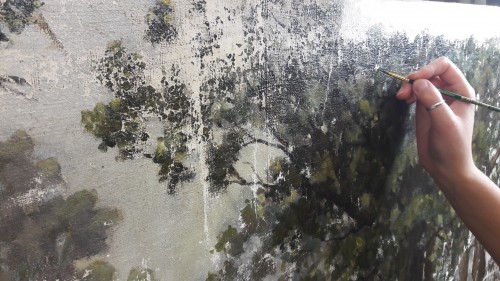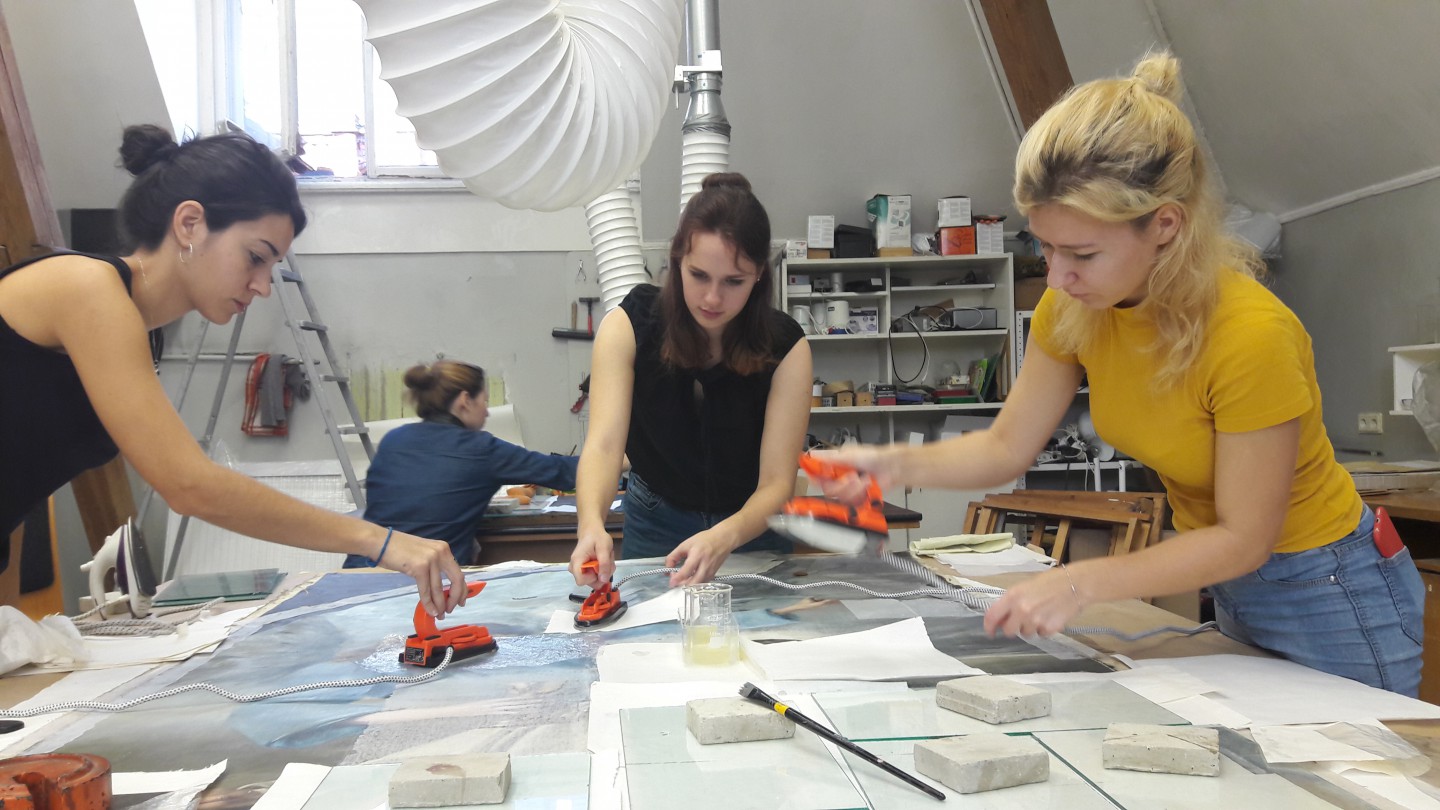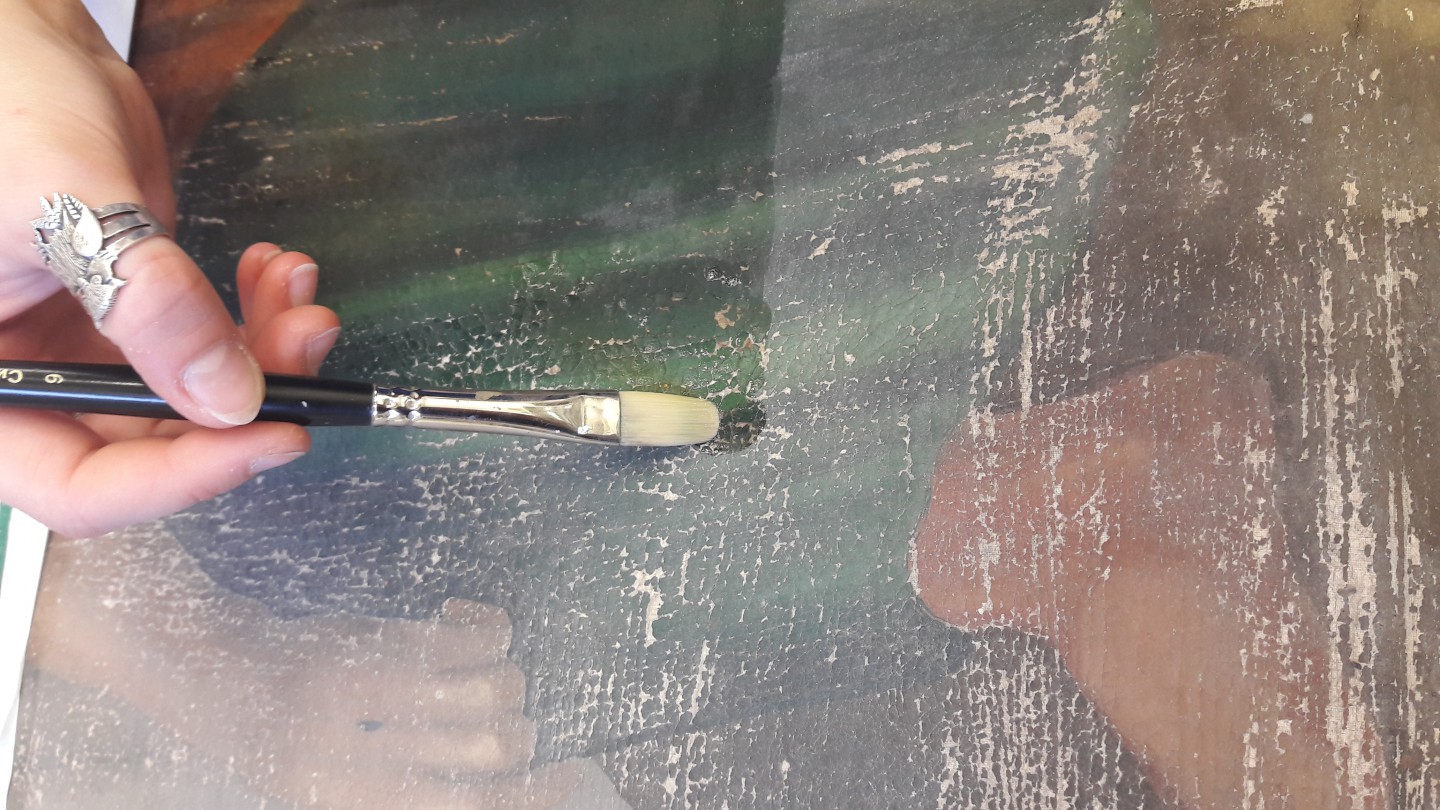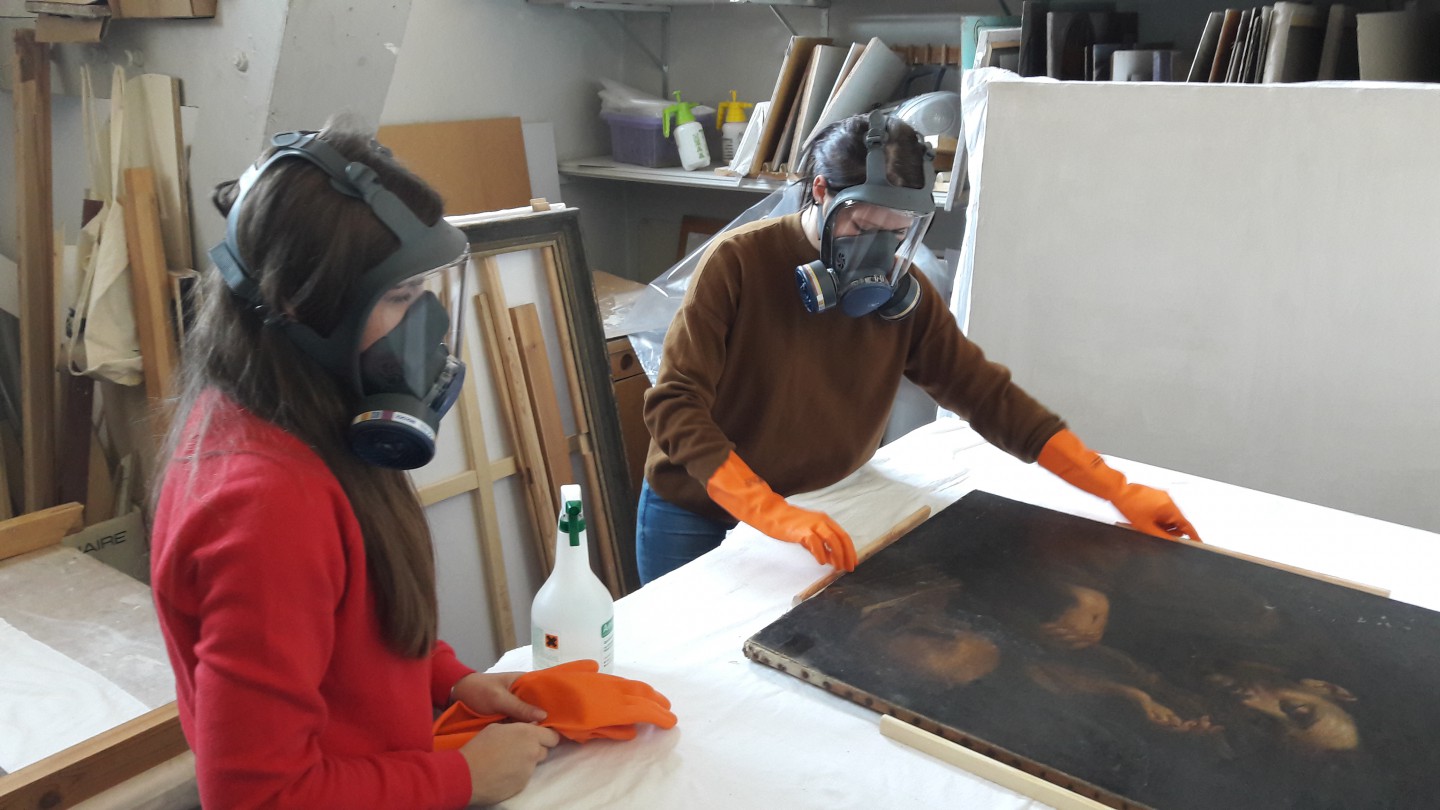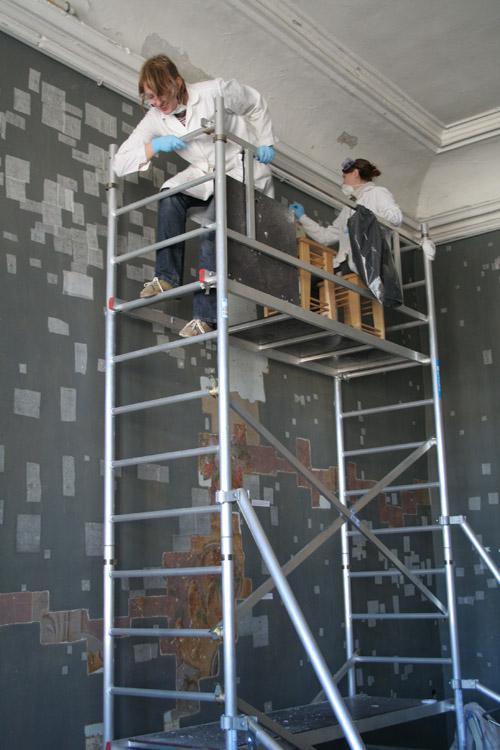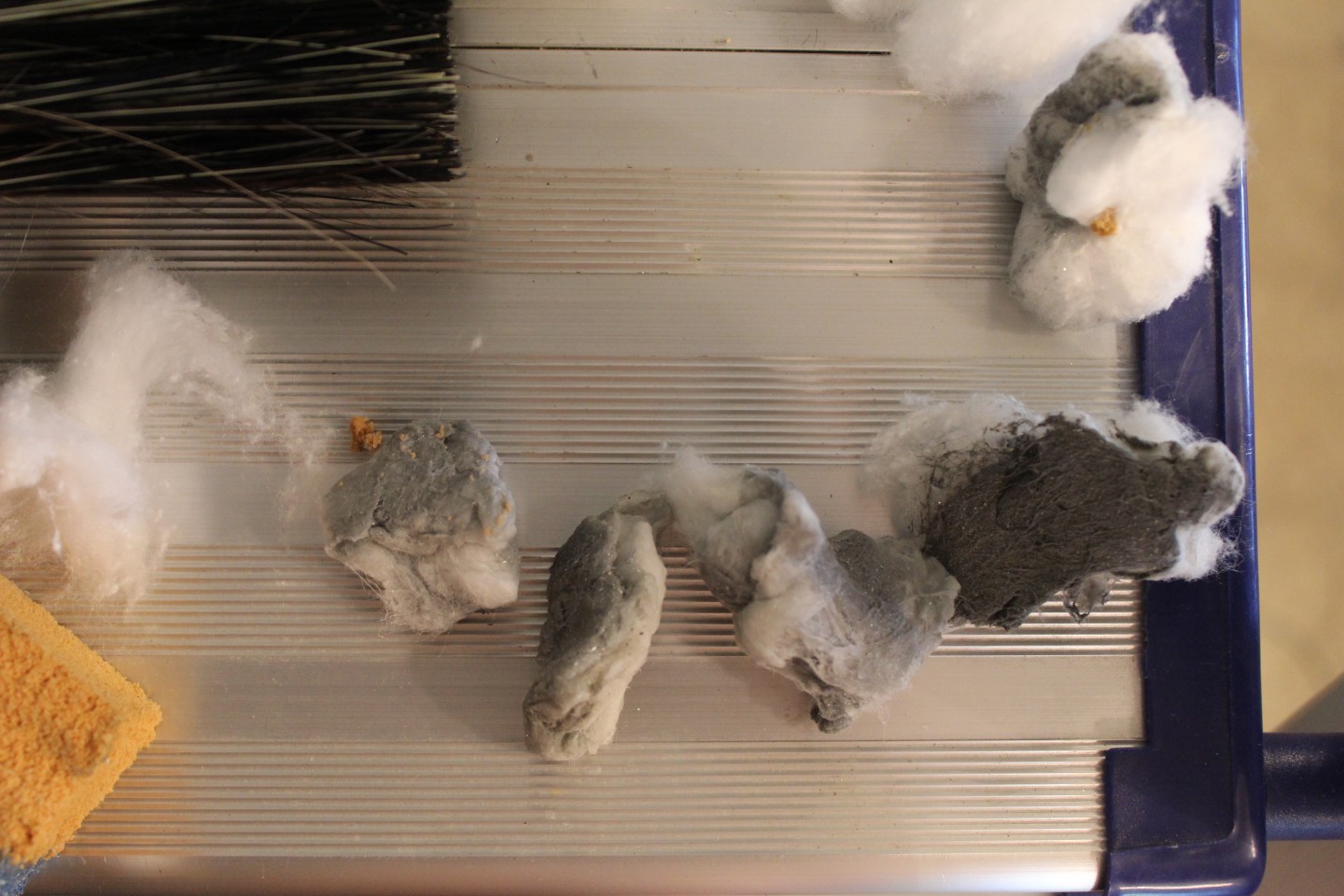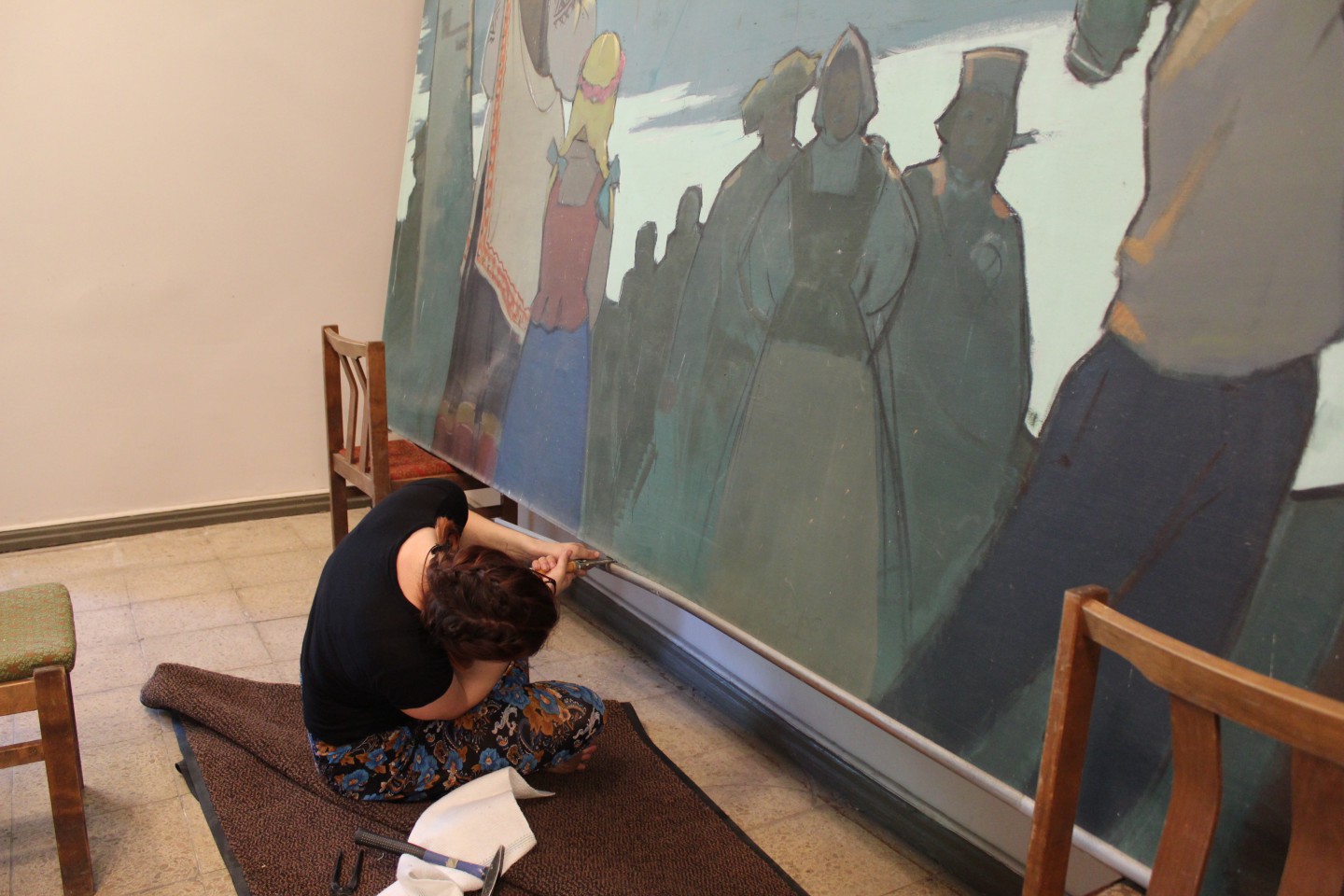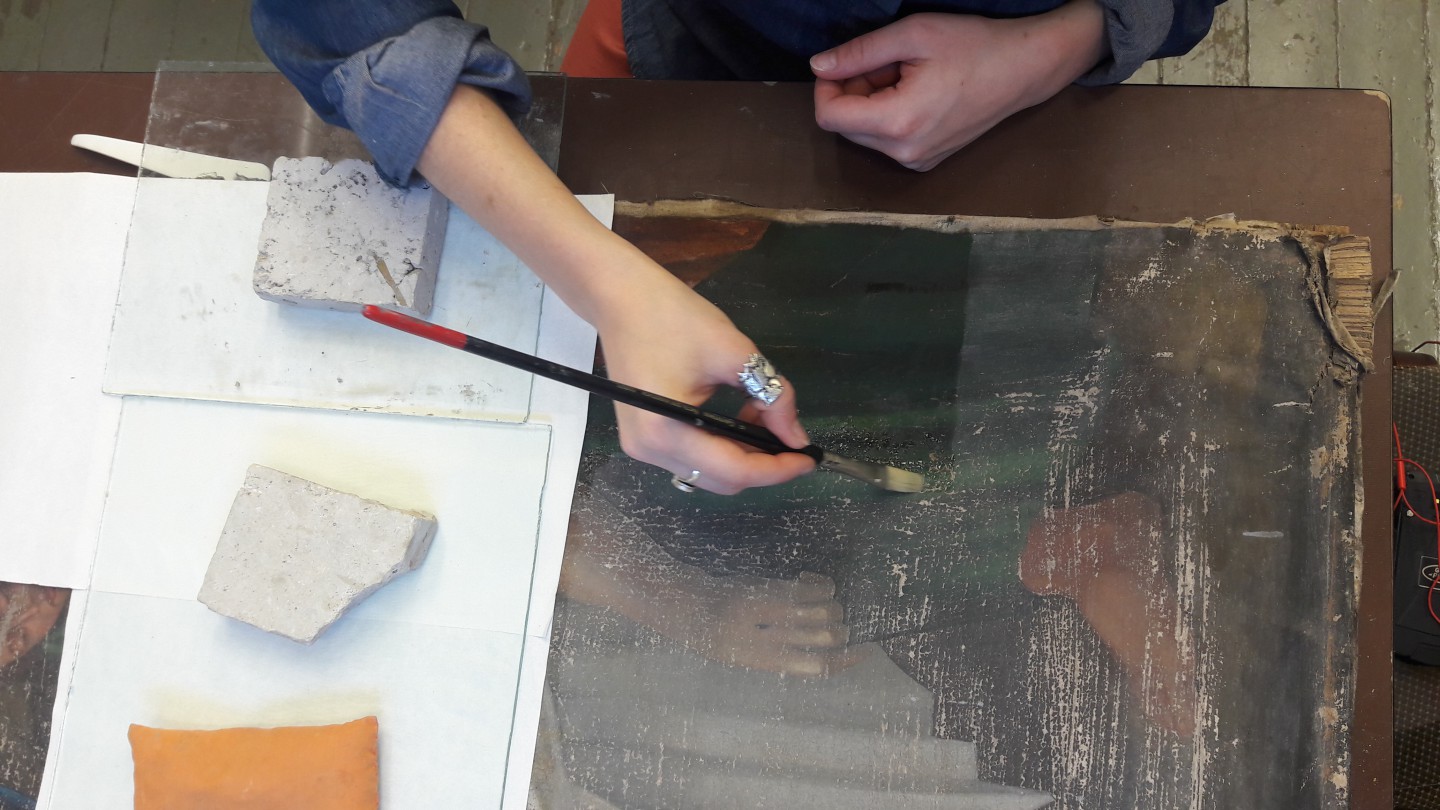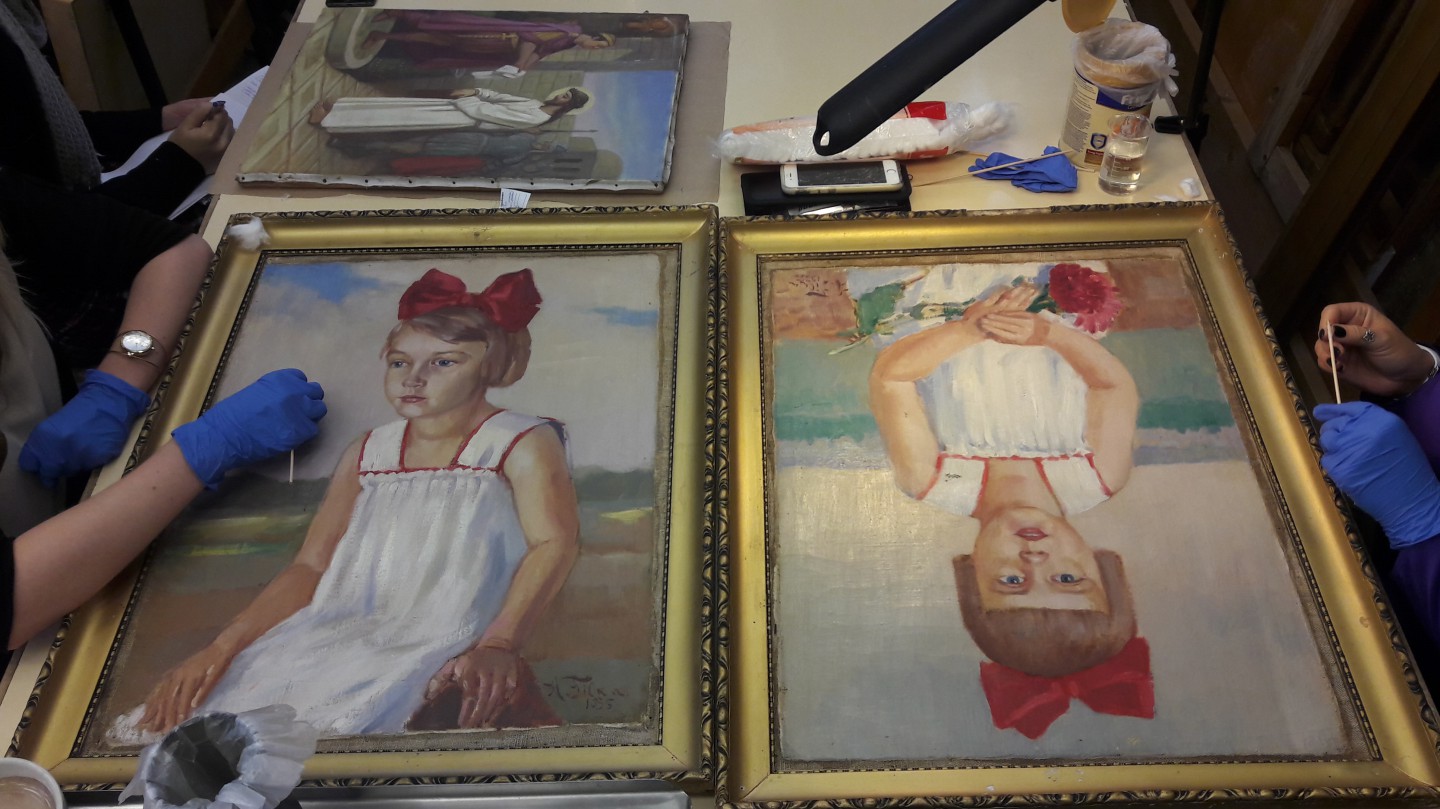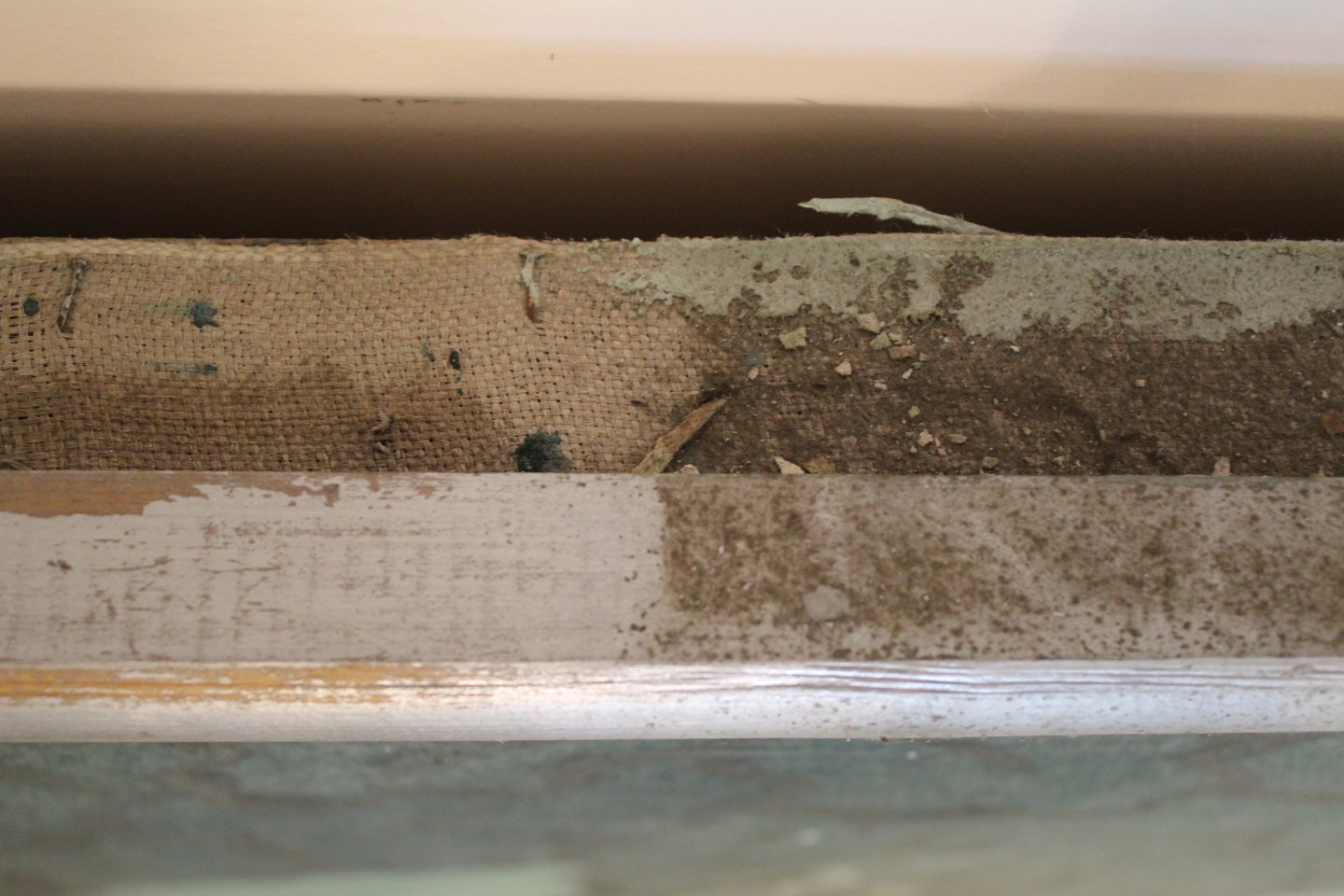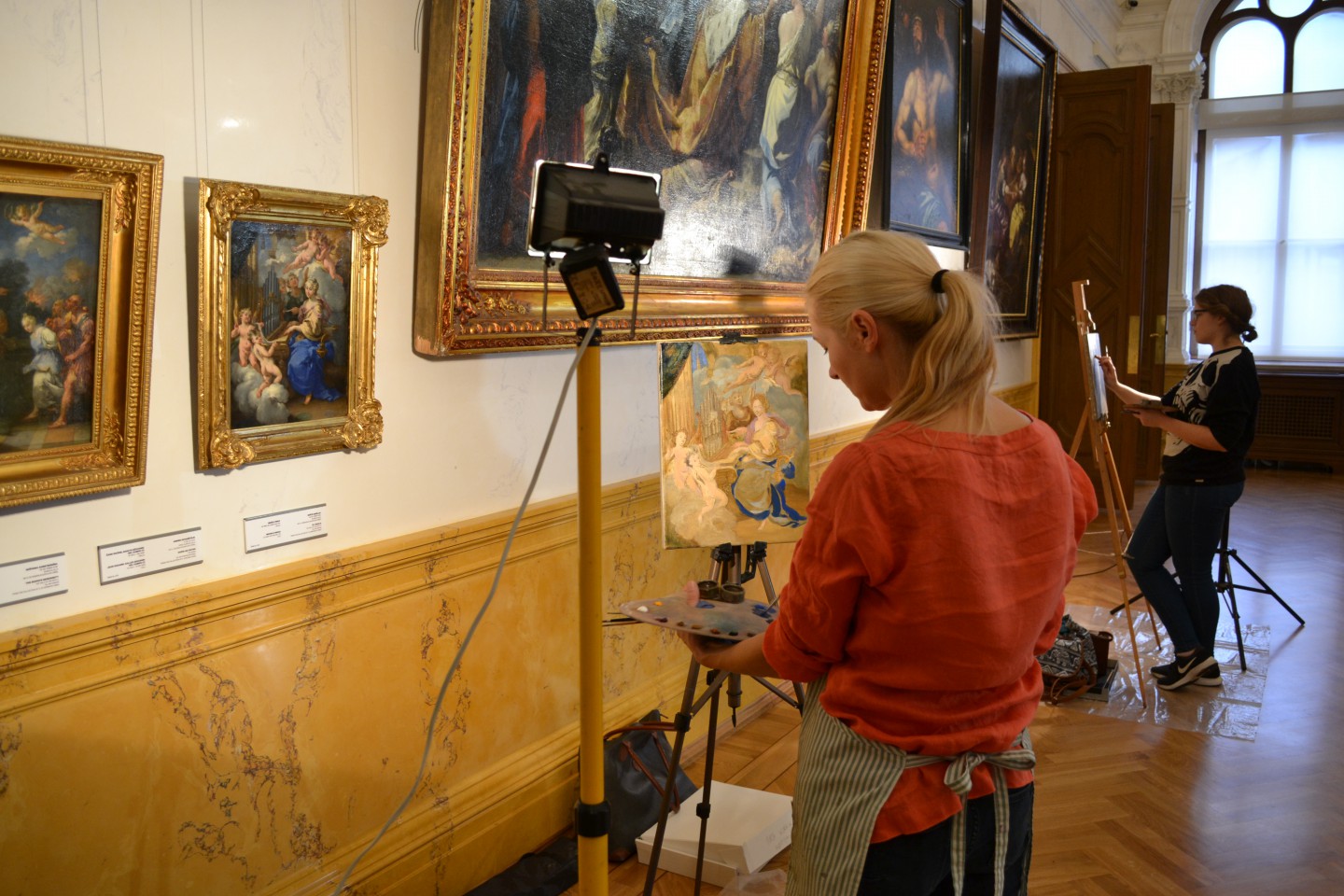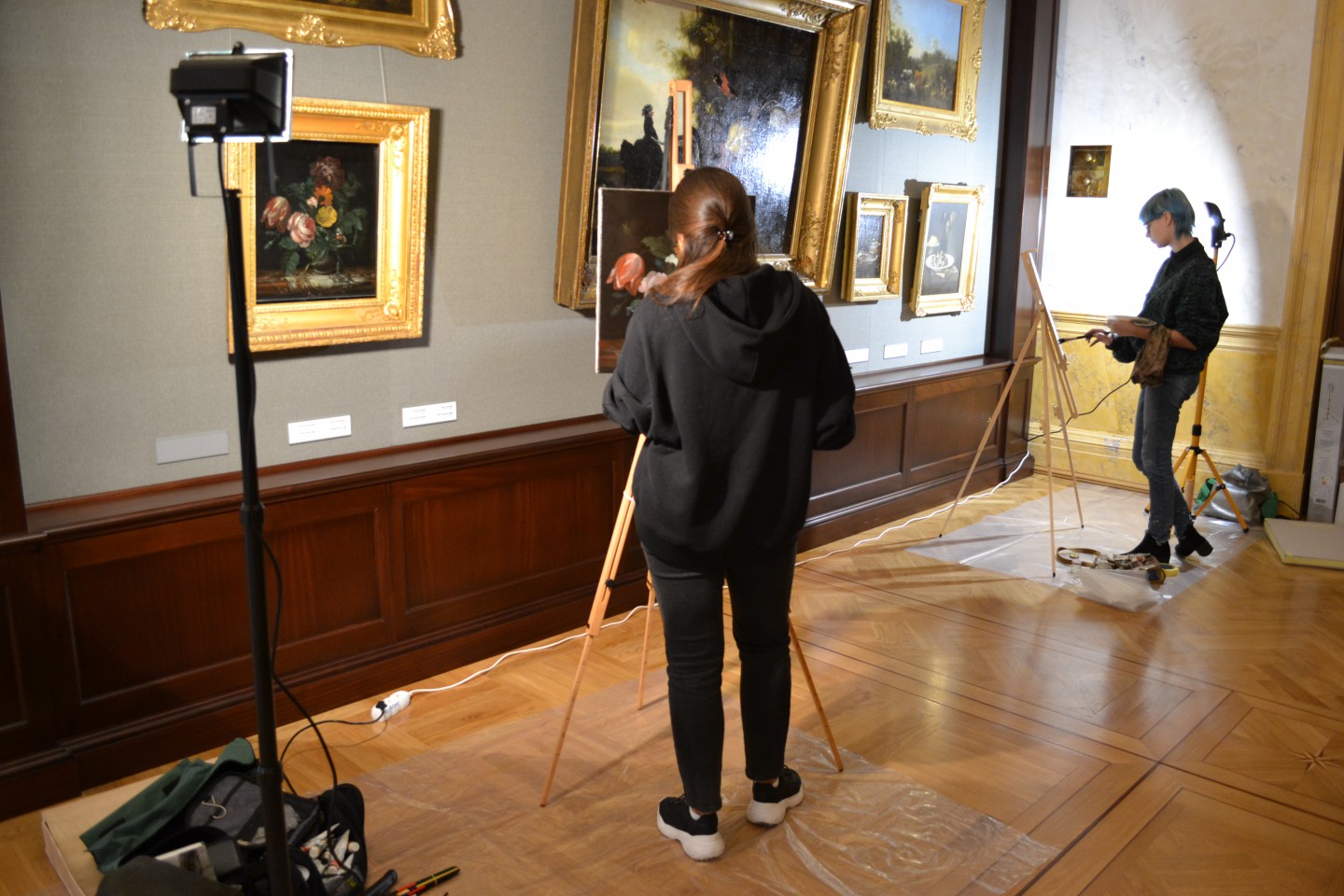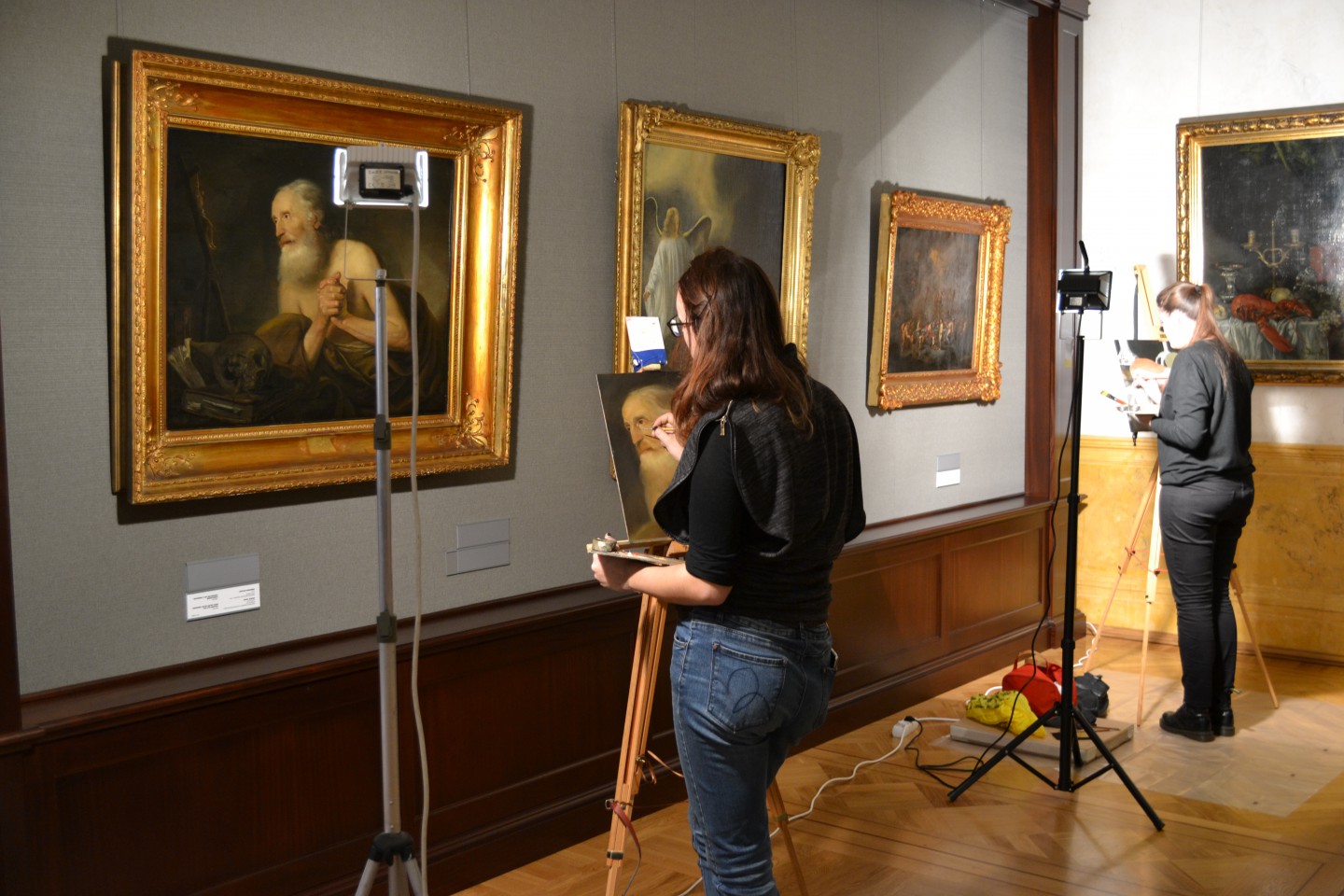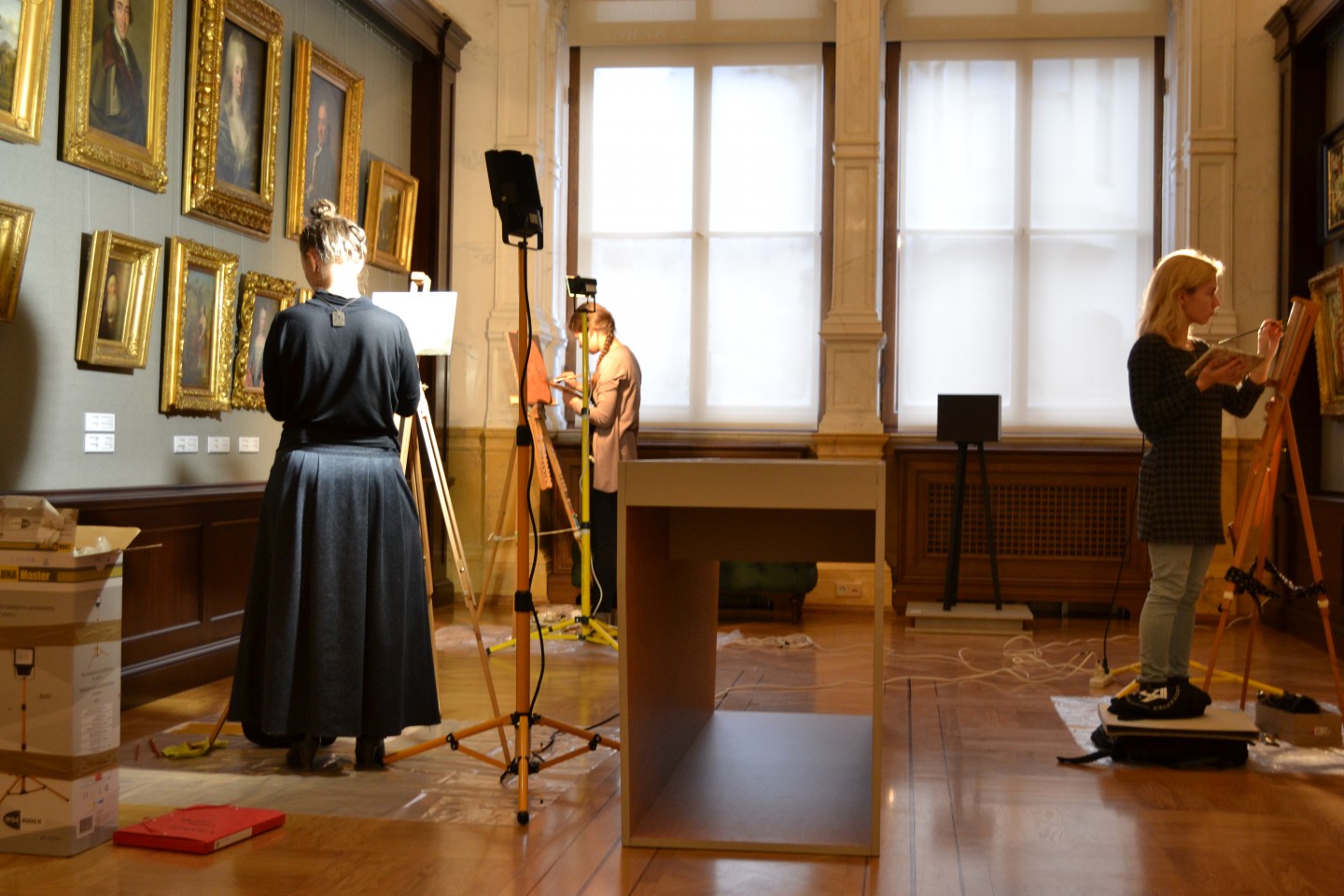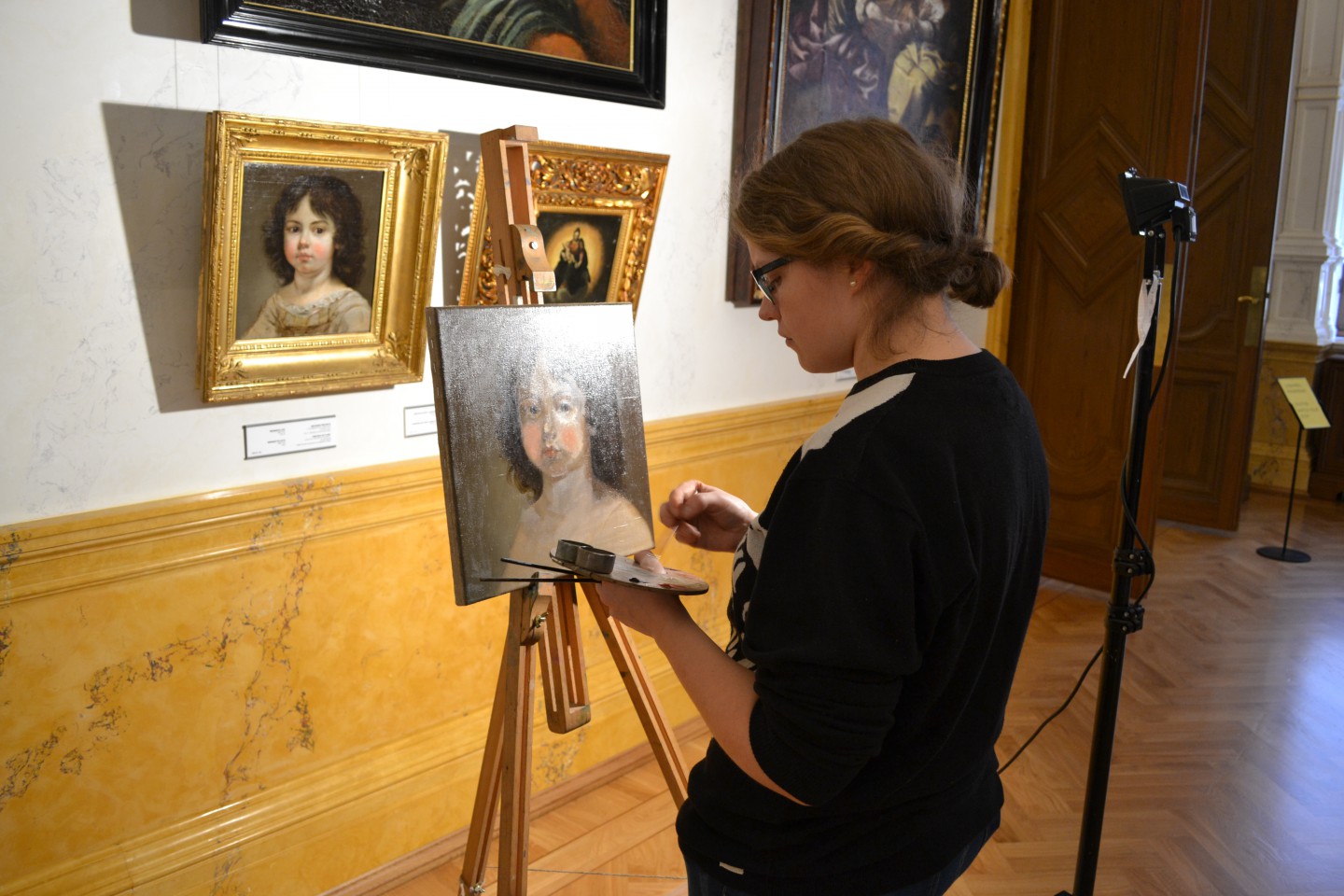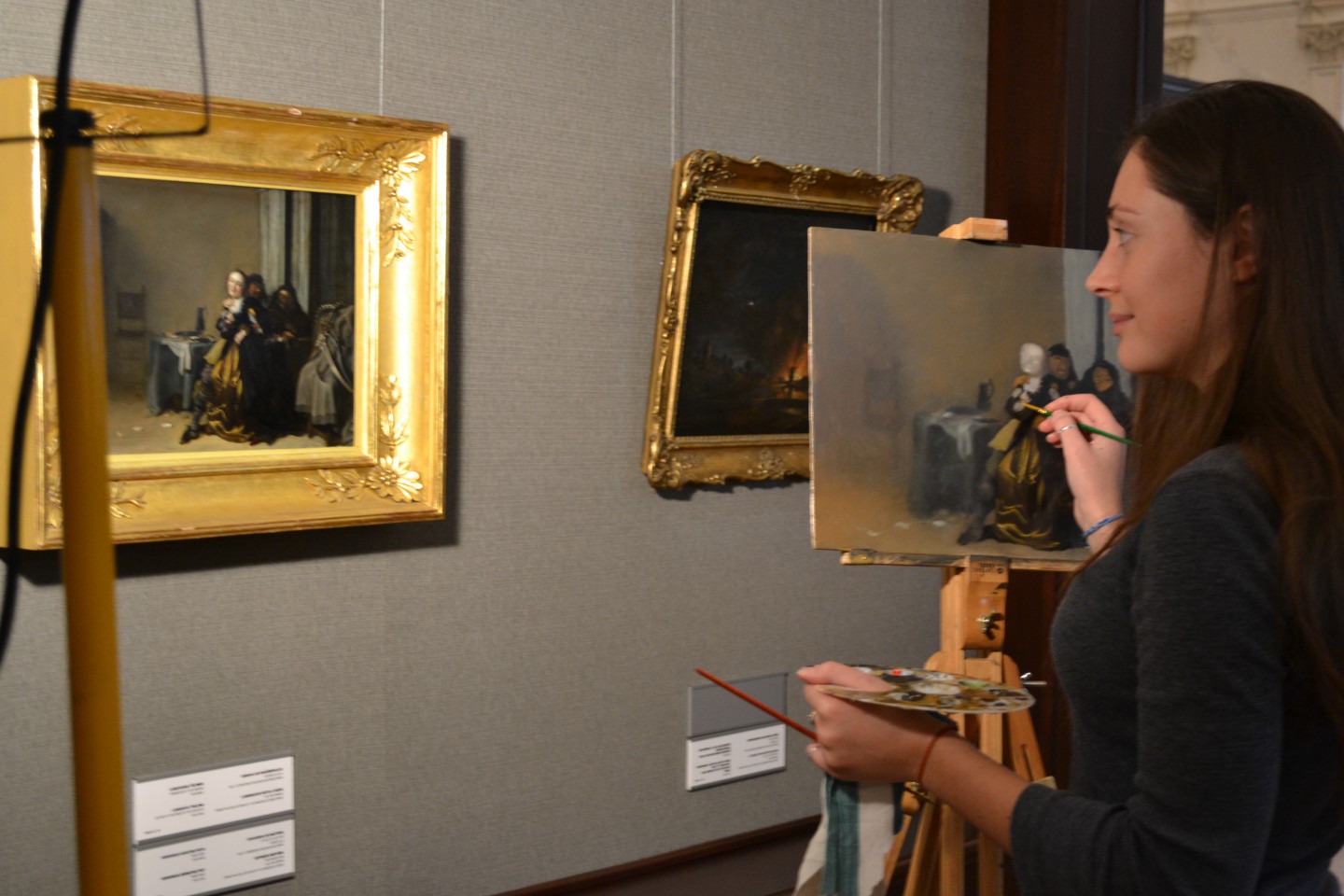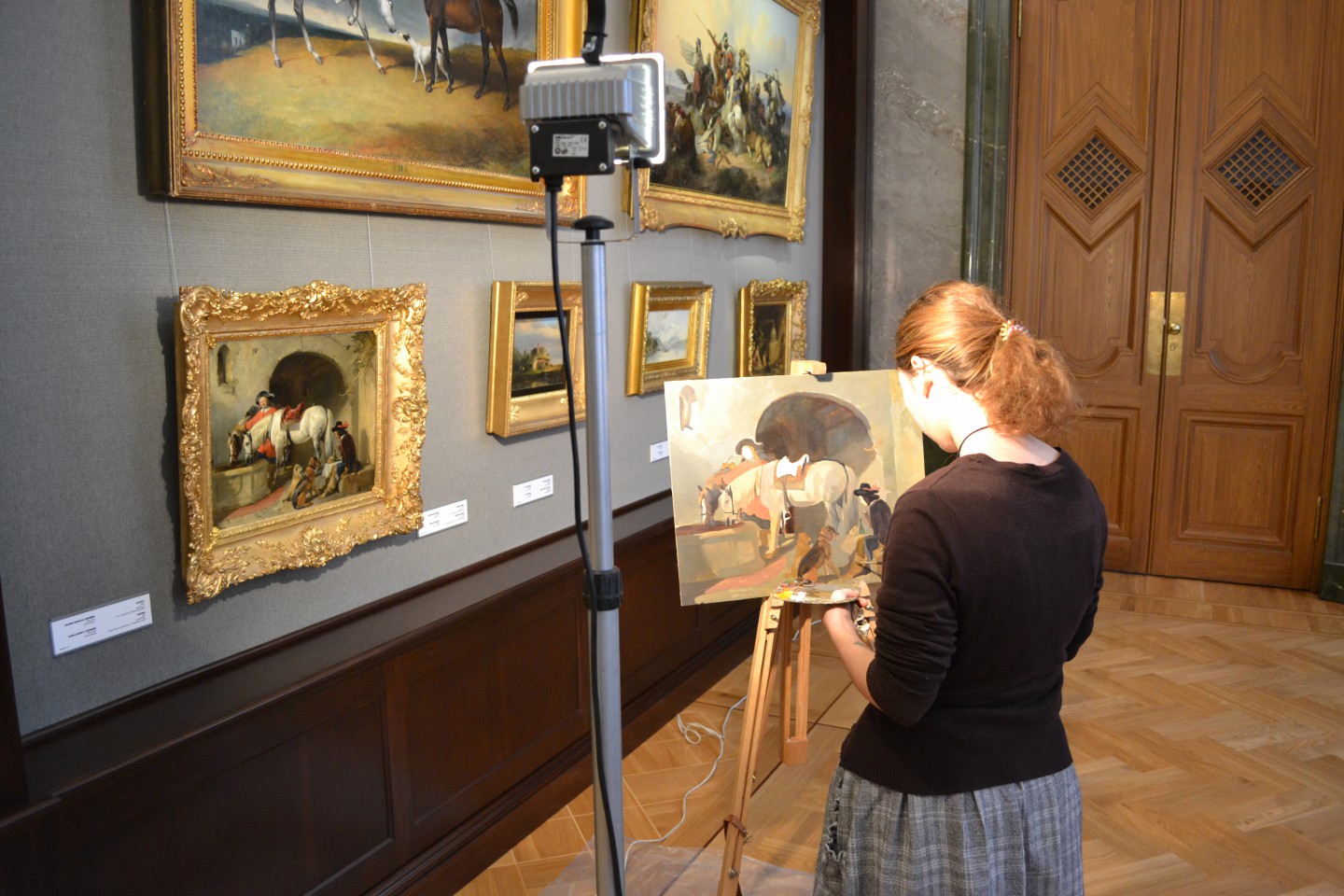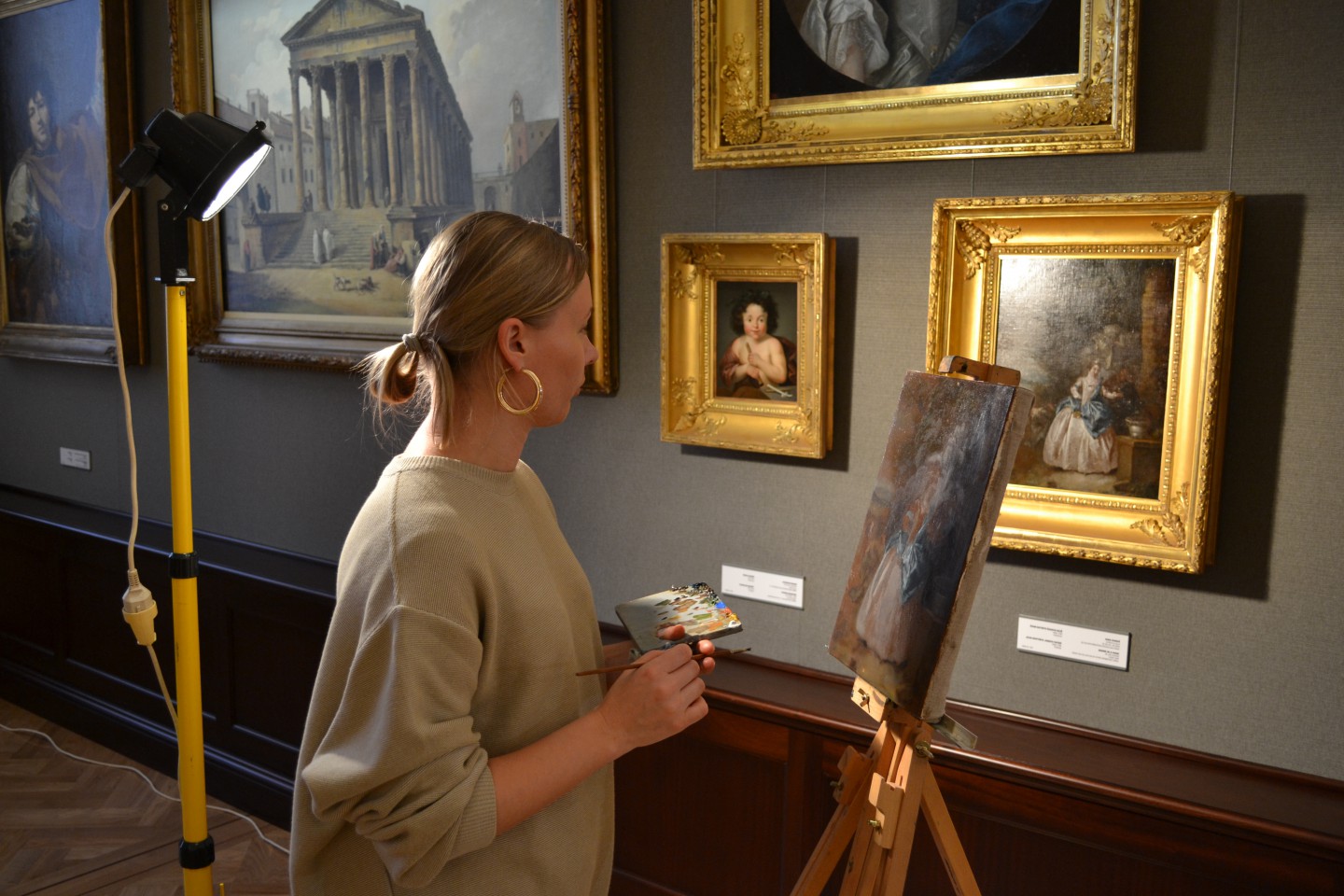About
The studies in the Department of Restoration incorporate academic subjects, as well as subject blocks that provide theoretical knowledge and practical skills in the restoration of easel paintings and monumental paintings. Theoretical restoration disciplines include painting technology and specialty chemistry. Lectures tackle research of the structure of the artwork, damage diagnostics, and materials used in restoration.
Practical lessons cover various restoration processes. While working with a particular art piece, theoretical knowledge is tested and expanded. Practical restoration disciplines also include copying of paintings and graphics, which gives knowledge about the optical structure of the painting's form, the nature of various techniques, and develops the skills necessary to work as a restorer. By performing increasingly complex tasks every year of studies, students become independent restoration specialists. Students learn the basic principles of restoration and learn how to prepare restoration documentation that complies with international practice.
During their studies, students have the opportunity to participate not only in creative work but also in scientific conferences and exhibitions related to their specialty. The teaching staff and students of the Department cooperate with Latvian museums, Latvian Academy of Sciences, Latvian State Institute of Wood Chemistry, the Faculty of Chemical Technology of Riga Technical University, as well as with European institutes of restoration and art universities.
ECTS course catalogue I (SPRING) SEMESTER:
BA level 2nd year
BA level 3rd year
MA level 1st year
ECTS course catalogue II (FALL) SEMESTER:
BA level 2nd year
BA level 3rd year
BA level 4th year
MA level 1st year
MA level 2nd year
